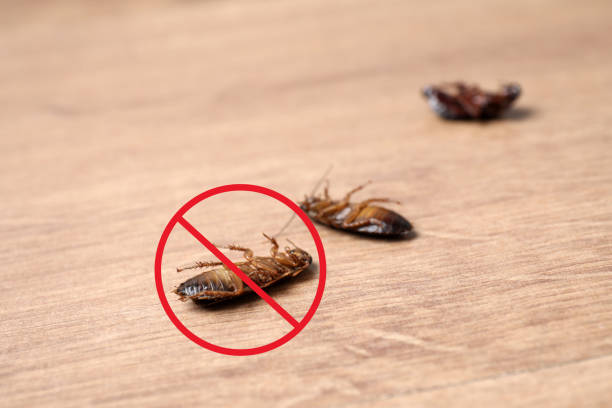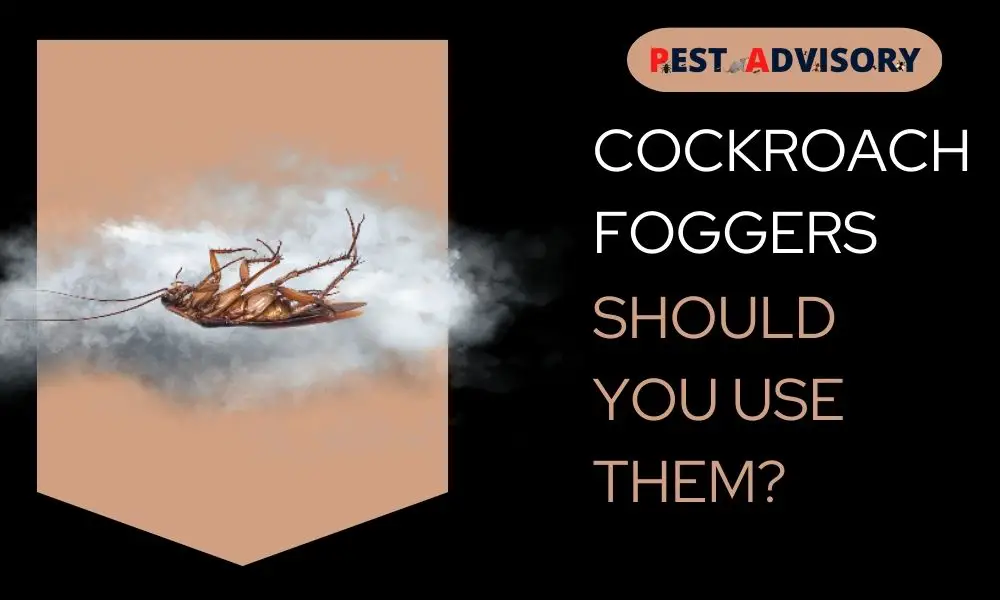63% of homes in the United States contain cockroaches and their particles, including saliva, feces, and decomposing body parts.
There is no denying the fact that roaches are not just unwanted house guests, they are also the source of various diseases. Due to this, anxious house owners are always searching for innovative, effective, and cheap roach cleaners to rid their homes of these pests.
One common DIY alternative to roach control is the cockroach bomb. Also called a cockroach fogger, this remedy invites some doubts and hesitancy for its associated risks.
Important Note: If you're tired of pests and want a reliable solution, then you should definitely consider seeking help from a professional pest control company. DIY solutions can be effective, but if you're dealing with a significant pest infestation, you don't want to rely solely on DIY methods. Pest control companies typically don't charge huge fees. You can fill out this form to receive free quotes from the top local pest control companies, and compare the quotes and see for yourself. Then, finally, your pest problems will be eliminated for good.
So what are cockroach foggers? Do they work?
Let’s find out.
How Cockroach Foggers Work
Cockroach foggers are a commonly sold item in most home improvement stores. Resembling small aerosol cans, they are designed for use in confined spaces, most commonly inside a house.
These foggers typically contain pyrethroid, pyrethrin, or a mixture of both as active ingredients. Pyrethroids are a class of inorganic, man-made insecticides that are structurally and chemically similar to naturally occurring pyrethrins.
Just like a simple room freshener, the fogger is placed on an elevated surface, such as a table, and the user can activate it by simply pressing a button on its head.
When triggered, the bomb puffs a pesticide into the air. Just like any gas, this aerosol-based pesticide then settles over the house, blanketing all corners and surfaces frequented by cockroaches. Whenever roaches come in contact with the pesticide, they die.
Should You Use Cockroach Foggers?
On first thought, roach bombs seem like the perfect solution. They are widely available, they cost similar to a regular pesticide, and are very easy to operate.
So, is eradicating cockroaches just a tap away?
Think again. There are some facts to consider before using a roach bomb for your home:
Effectiveness
Contrary to popular belief, aerosols are NOT able to cover every corner of your house. Despite being a gas, they tend to settle around the source and often miss out on the deepest corners. This means that most roach hideouts are somehow overlooked, rendering the pesticide useless.
As the fogger is only effective when the roach comes in contact with the pesticide, having limited coverage is a major disadvantage.
For this reason, bombs are ineffective at treating large-scale cockroach infestations. They can only take care of small attacks, where the roaches are limited in number and have not made deep burrows everywhere.

Hazardous to Health
At the end of the day, all chemicals contain harmful substances that adversely affect your health. Foggers coat your house with pesticides, which may settle on your food and clothing.
Plus aerosols are highly flammable. Therefore, you may be essentially coating your house with inflammable gas that can ignite if you are not careful. This concern routinely deters users from using cockroach foggers in their houses.
Precautions
Considering their complex chemical composition, the Environmental Protection Agency (EPA) advises users to refrain from staying around deployed foggers for long. While pyrethrins have a low potential for systemic toxicity in humans, they may still cause considerable damage to our immune system.
Hence, they are instructed to vacate the premises to avoid inhaling the fumes. Homeowners should avoid entering the house and also try to keep their pets outside, for a minimum of two to four hours, depending on the potency of their fogger.
Also, food items, clothing, expensive gadgets, and other valuables should be covered before you use the spray. Direct contact with the skin should also be avoided to prevent infection, irritation, or allergies.
Once the pesticide settles, windows and doors should be opened to allow ventilation to clear the fumes. Linens should be thoroughly washed and carpets vacuumed.
Following these instructions is important, as most fogger-related injuries occur when people 1) re-enter the area too soon post-fogging or 2) spray a lot more than the recommended amount of insecticide.
Time and Money
Considering the above pointers, it makes one wonder- is the process going to be too cumbersome? Most DIY cockroach foggers may cause unnecessary trouble. They pose health risks, don’t guarantee a positive outcome, and demand enormous preparation before they can be deployed.
And finally, foggers only partially solve the roach problem, forcing homeowners to opt for secondary solutions to finish the job. This makes them spend more money than they had anticipated.
Final Words
Ignoring the instructions on the can and failing to correctly use foggers can prove catastrophic to homeowners. Not only can there be damage to furniture, food, and clothing, but there can also be lasting effects on health.
Foggers are dangerous for people, pets, and your house. High concentrations are flammable and pose a risk if kept near gas or electric appliances.
It is, therefore, best to avoid using such a dicey solution to take care of roaches. Roach foggers only make sense if the infestation is small and only a few puffs are enough to do the job.
For all other cases, it is better to opt for organic and natural pest controllers or hire exterminators to fumigate your property.

